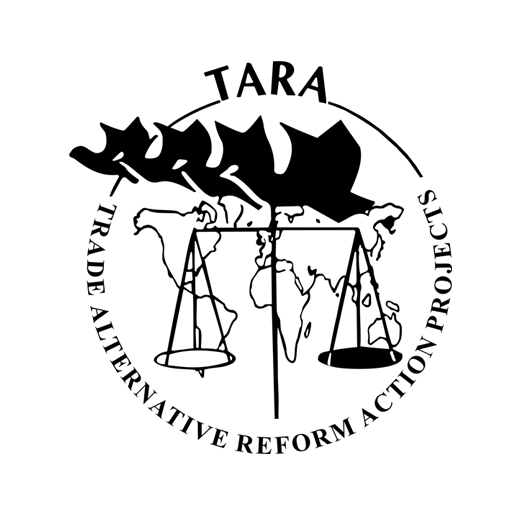Mosmin
Allowing women to speak up
Khiwai, a village menaced by community tensions in Uttar Pradesh
"Khiwai Khiwai?” The car driver utters those couple words like an incantation every time we pass by a shopkeeper or a farmer along the road. Our car wanders among lush plantations and canals in the Uttar Pradesh countryside, looking for the Muslim village of Khiwai. As we explore this wondrous rural landscape, dotted with villages and mosques, it is easy to forget that Delhi is not so far away.
The long journey is not unpleasant. One is easily fascinated by the intricate paintings that cover Indian trucks, as well as the bright colors of the armies of rickshaws that gather every time we approach a village. We are in the period of Ganesh Chaturthi, the festival of the god Ganesh, and Hindu families organize big celebrations, immersing statues of the elephant god in the canals, surrounded by a fanfare of music and confetti.
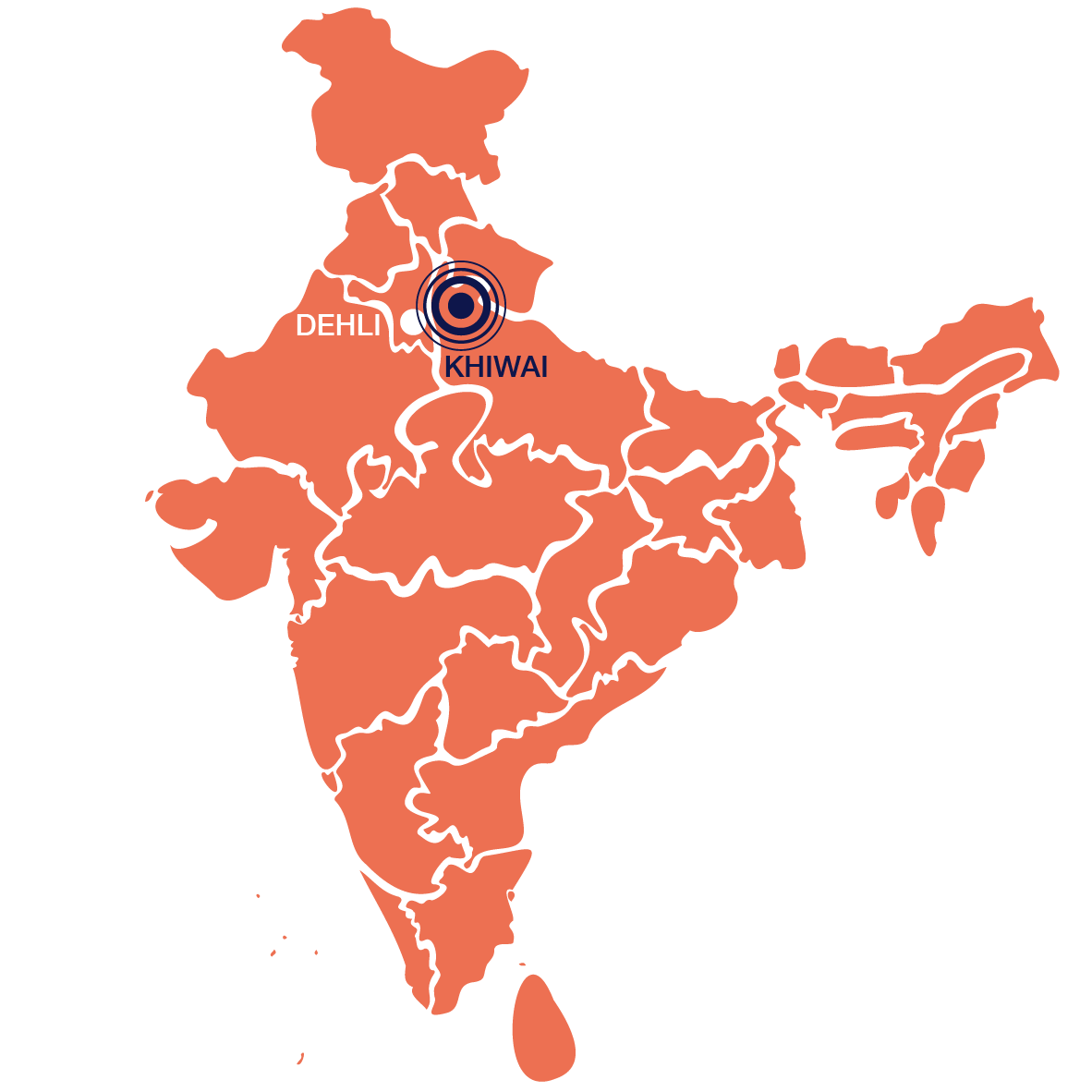
On the banks of the Hindon river, one of these celebrations takes a menacing turn. While the party is in full swing, a Muslim observes the celebration with disdain, and quietly berates the crowd. The Hindus seem to ignore him, until one of the musicians turns around and stares at him with a wry smile.
This brief interaction is a reminder of the tensions that plagued Uttar Pradesh for decades. A highly populated rural state, it is home to an overwhelming majority of Hindus, who see this region as the cradle of their religion and culture. Most of the sacred cities of Hinduism, such as Varanasi and Ayodhya, are located in this Northern region of India.
Muslims are the largest minority in Uttar Pradesh, and violences against them are common. Memories of the 1990s anti-Muslim pogroms are still vivid: a period of massive violence in the state, which started with the demolition of the Mughal Mosque of Babri, in 1992, by Hindus who claimed that it had been built on the birthplace of Rama, a major incarnation of the god Vishnu.
The village of Khiwai is one of the few predominantly Muslim villages in Uttar Pradesh. Responding to the recent upsurge of religious violence, the village is currently ruled by conservative religious leaders, who observe a rigorous vision of Islam. Women live under the supervision of their parents, husbands or parents-in-law, and children are pushed to go to the Koranic school instead of public school.
As we finally approach the village, it is easy to distinguish the small Hindu quarter from the large Muslim section. Few women are present in the alleyways, except for those who stealthily peek at the newcomers from their doors and windows. However, it is impossible to feel lonely, as one is quickly surrounded by hordes of children, fascinated by the camera and the microphone.
The teenagers all sport Neymar-style haircuts, while others jump in front of the camera, shouting "selfie!" to request a picture. Gandhi used to say that the real India wasn’t in Calcutta or Mumbai, but in the nation’s countless villages. Khiwai has not been spared from globalization, however.
To reach our objective, one still has to cross a maze of brick houses and mosques, surrounded by the curious gaze of children. In the heart of this small village, Mosmin awaits us.
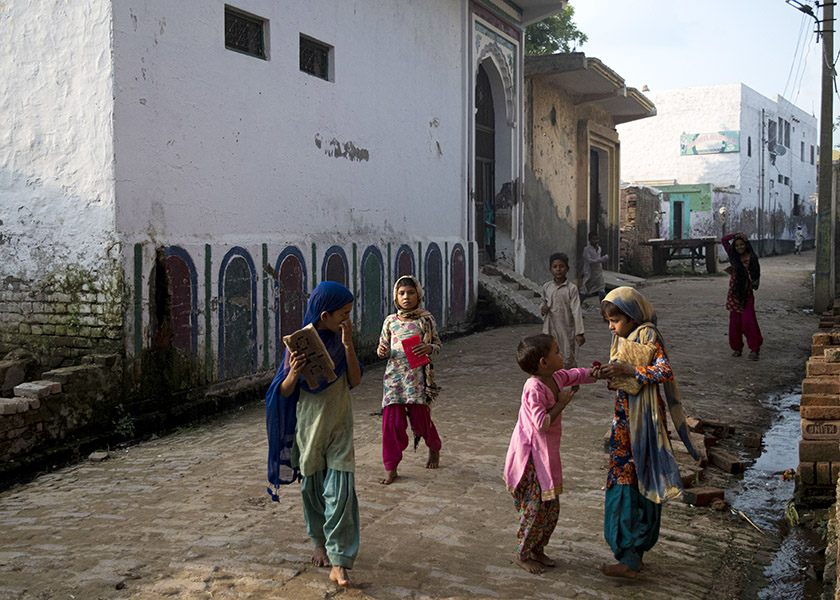
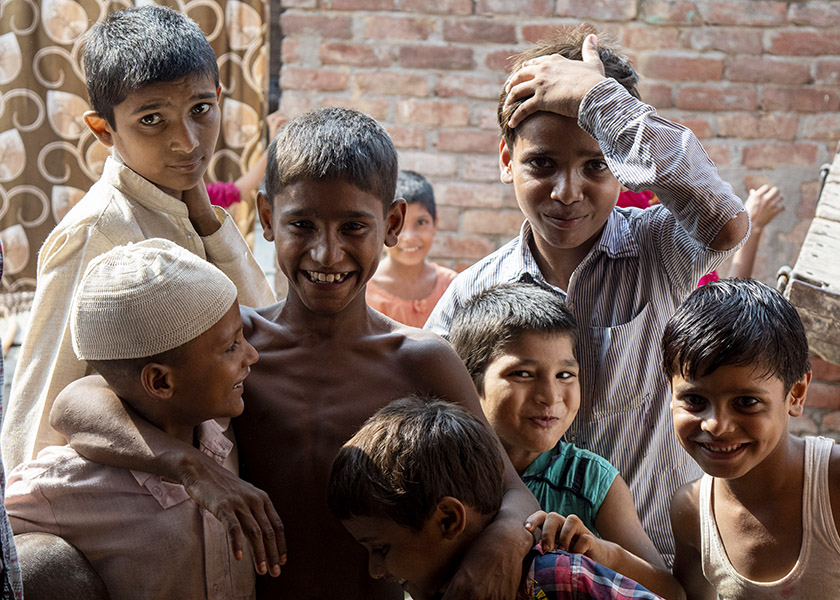
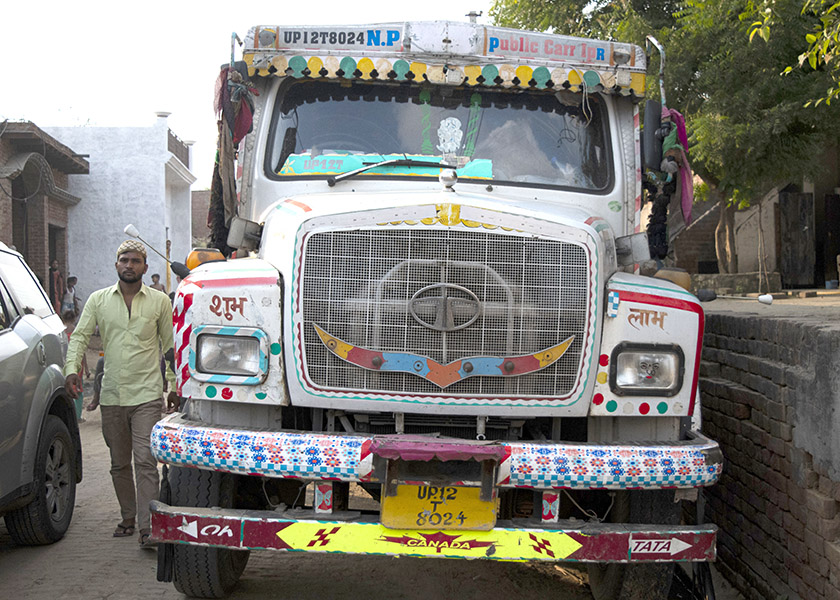
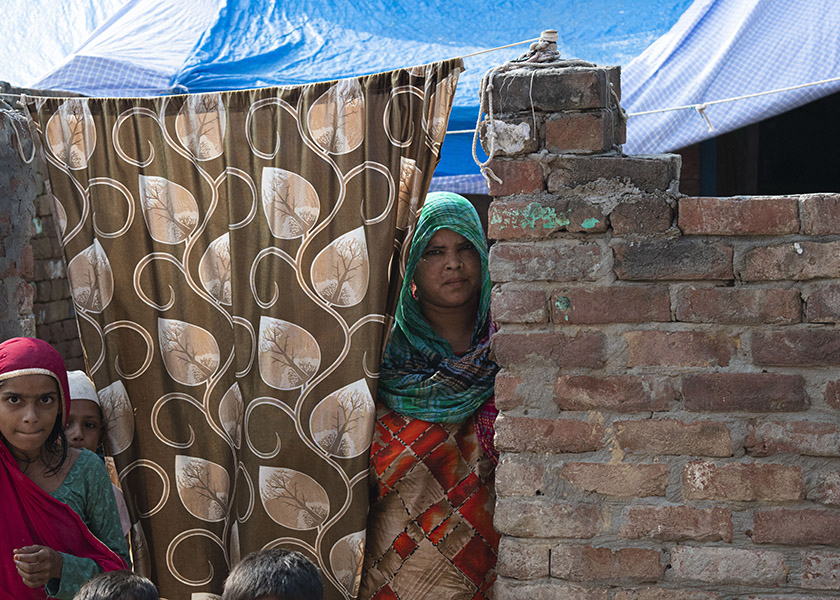
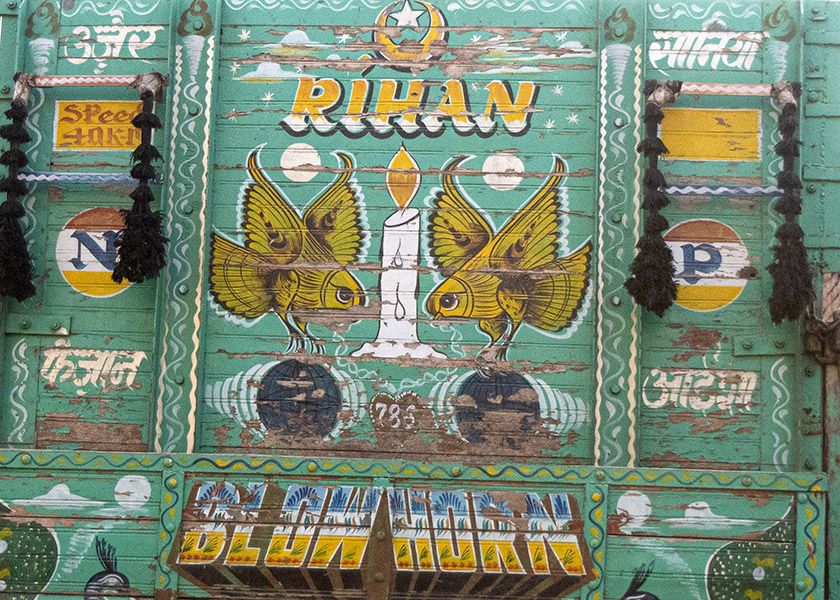
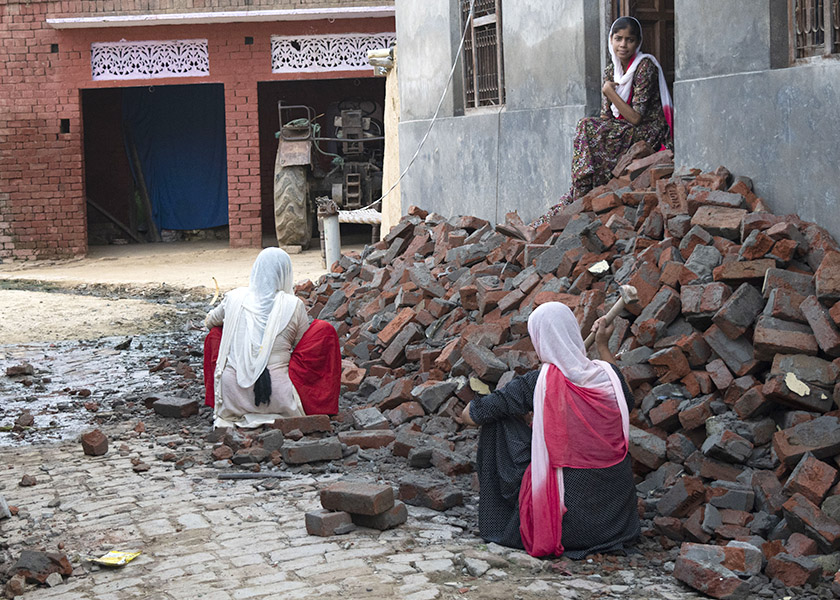
Mosmin, a feminist craftswoman in a village ruled by men
Mosmin is an artisan, born in a family of farmers from Khiwai. When her husband left her for another woman, she returned to her parents’ home despite the stigma she suffered for living without her spouse.
Already a mother of 3 children, she started to create handicrafts for conventional contractors in order to provide for her family. However, her salary was low and inconsistent.
After hearing about the TARA projects,projects association, which helps artisans access fair trade, she decided to get in touch with them.
Despite her family banning her from leaving the village, she took a bus to Delhi to meet the president of TARA Projects. It was the first time she had left Khiwai since her marriage.
With the support of TARA, Mosmin managed to found a workshop in her village, making sure to make it as welcoming as possible: installing air conditioning, organizing displays, making driking water available, among other things. Little by little, she convinced the women of her town to come and work with her, while reassuring their families that there was no risk in the workshop.
At first, the village’s men were suspicious of Mosmin’s project, and headed to TARA Projects’ headquarters. Indeed, they were afraid that this new workshop would be a place where women would see other men. However, after finding out that TARA was headed by a woman, they felt reassured and allowed Mosmin to go on with her initiative.
Today, Mosmin’s workshop has become a space where women can not only earn their own money, but also speak and share ideas freely, without being overseen by men. With TARA’s support, they even organized literacy and math classes to help craftswomen to better negotiate their wages.
17 craftswomen currently work on a permanent basis in the workshop, while many others participate sporadically. When they have orders, they earn 350 rupees per day for 6 to 7 hours of work (the minimum wage per day for unskilled work in Uttar Pradesh in 2019 was of 318.42 Rupees).
Mosmin has now become an example for many women in Khiwai. She sends her children to public school, and fights for gender equality by giving work opportunities to women, who can now earn an income, become independent and be recognized in their community.
"We did not have the chance to go to school, but now my children are receiving an education. This was possible thanks to fair trade. It gave us the strength to speak out about what we think. "
Manuel-Antonio Monteagudo
